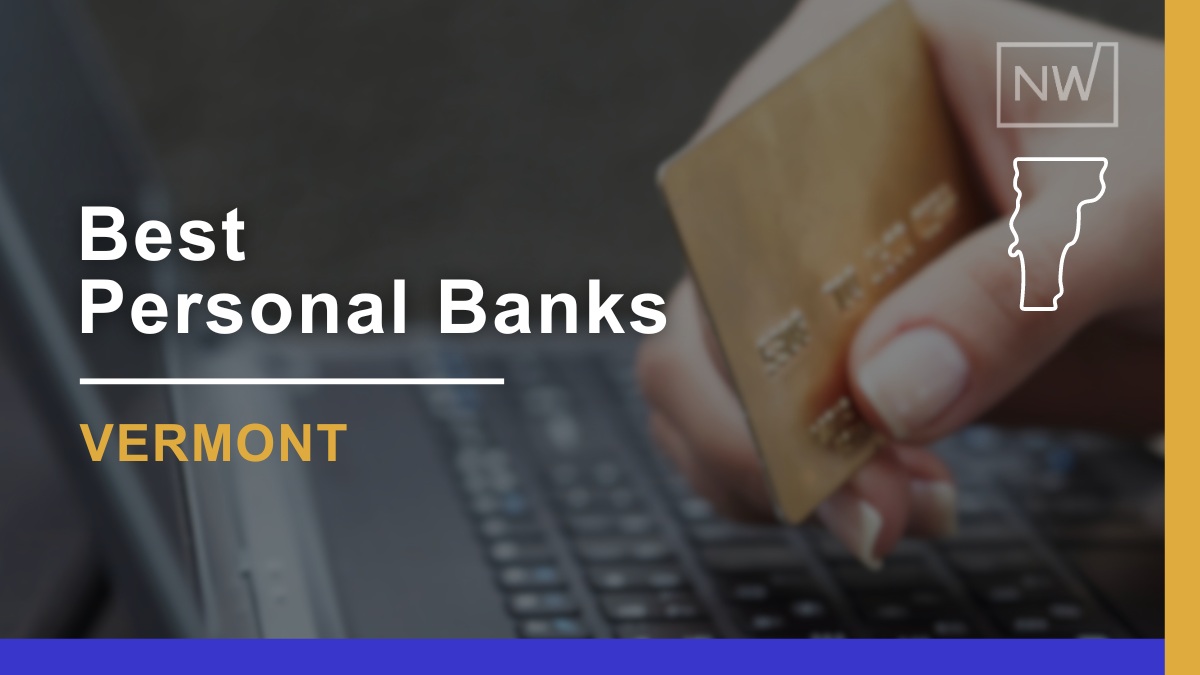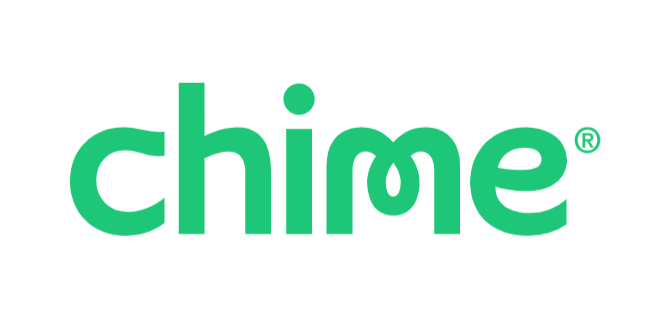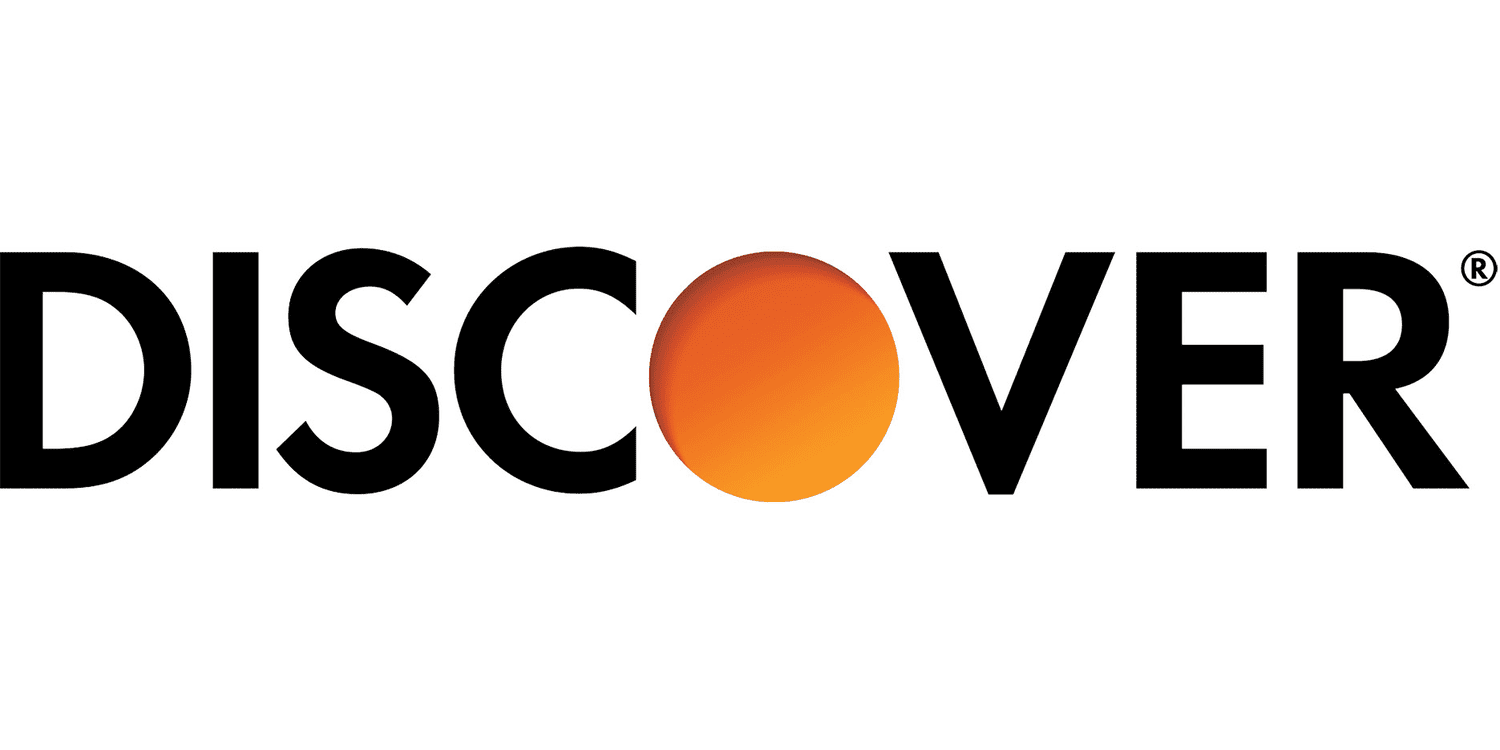Countless banking options are available in Vermont, but how do you know which ones are reliable and worth it? That’s the task this article will tackle for you. I’ve compiled a list of Vermont’s best personal banks with great reputations and reviews. Read the article to learn which one is best for you.
>> Experience Banking Freedom With Axos >>
Best Personal Banks in Vermont
Axos – Best Personal Vermont Banks Overall
Axos is one of Vermont’s most popular banking choices for individuals and small businesses. It’s a pioneer digital bank that offers a wide range of products and services with the highest security. Axos offers its users high-yield savings accounts, free checking accounts, and innovative financial products.
Moreover, Axos has a very reliable and effective mobile banking service that enables you to manage your account, deposit checks, transfer funds, and wire transfers. You also get budgeting tools to stay on top of your finances.
Pros
- Unlimited transaction
- No minimum requirement
- 24/7 customer service
- Welcome bonus for new customers
Cons
- No physical banks
- No-third party integration
>> Personal Banking Awaits With Axos >>
Chime – Best User-Friendly Interface
In Vermont, Chime Bank is celebrated as an exceptional personal banking solution thanks to its intuitive interface, extensive ATM access, and progressive financial options. Online banking users favor it for its contemporary features that attract tech-savvy individuals and those avoiding traditional banking fees.
Vermonters can take advantage of Chime’s early direct deposit feature, which allows them to get their paychecks up to two days sooner than with standard banks, adding essential convenience and financial adaptability. With over 60,000 fee-free ATMs across the Allpoint and MoneyPass networks, finding a nearby ATM without extra fees is straightforward, making cash withdrawals easy.
Pros
- No monthly maintenance, overdraft, or foreign transaction fees
- Paychecks are received up to two days early
- Competitive APY boosts savings
Cons
- Operates only online, which might appeal to some
- Cash deposits need to be made at Green Dot locations, potentially incurring fees
>> Personal Banking Awaits With Chime Bank >>
SoFi – Best for Saving Accounts
In Vermont, SoFi distinguishes itself with savings accounts that feature high interest rates, outperforming many traditional banks. This attribute makes SoFi a lucrative choice for Vermonters aiming to enhance their savings strategies.
SoFi clients in Vermont benefit from accelerated savings growth and a more effective way to meet their financial goals. Beyond typical banking offerings, SoFi also provides various member benefits to improve customers’ financial health.
Career coaching, financial planning, and access to exclusive events are benefits of joining SoFi in Vermont. SoFi provides essential resources and support for pursuing personal and career objectives.
Pros
- Competitive interest rates on savings accounts promote faster savings accumulation
- Exempt from monthly fees, overdraft fees, or minimum balance requirements
- Diverse services like student loan refinancing, personal loans, and investments
Cons
- Mainly online, which may not satisfy traditional banking customers
- The more complex process for making cash deposits
- The absence of physical customer support can be problematic for complex issues
>> Personal Banking Awaits With SoFi >>
Bank of America – Best for Opening a Checking Account
In Vermont, Bank of America (BofA) is a dependable option for personal banking, supported by its distinction as one of the most prominent and longstanding banks in the U.S. Its extensive offerings meet diverse banking requirements, making it particularly appealing for those who prefer traditional banking over online alternatives.
With many branches throughout Vermont, accessibility is a key advantage, facilitating easy location of ATMs or face-to-face customer support as needed. While the savings APY offered by Bank of America may not rival those of online banks, it offers a wide range of financial products, such as credit cards, home and auto loans, and investments through its partnership with Merrill.
Pros
- Extensive branch and ATM access in Vermont
- Offers accounts, loans, credit cards, and investments
- Easy-to-use online and mobile banking with strong security
Cons
- Monthly fees apply unless balance or activity requirements are met
- Savings and CD rates are lower than online banks
- Multiple fees can add up, requiring careful management
>> Personal Banking Awaits With Bank of America >>
Upgrade – Best for Personal Loans
Upgrade stands out in the personal banking sector in Vermont by integrating modern digital services with customer-oriented features. Its high-yield savings account is attractive, offering interest rates significantly above those of conventional banks, making it a top choice for savers.
Upgrade’s commitment to providing outstanding customer support adds to its attractiveness. Several channels of customer help are available. Upgrade’s straightforward financial products ensure terms are easy to understand, helping customers avoid hidden fees and complex contracts.
As a personal bank account option, Upgrade represents a modern solution that suits the contemporary financial environment. With attractive savings returns, accessible credit options, and superior customer service, it’s a prudent choice.
Pros
- Offers competitive interest rates on savings accounts
- Free from monthly maintenance fees and minimum balance demands
- Offers personal loans and the Upgrade Card, blending loan and credit card
Cons
- Primarily online, this may deter those who prefer traditional banking
- Cash deposits are harder without a dedicated ATM network
>> Personal Banking Awaits With Upgrade >>
U.S. Bank – Best Customer Service
U.S. Bank’s digital tools, such as its industry-leading mobile app, which Keynova Group awarded for three years, significantly enhance the banking experience.
For the fourth year in a row, U.S. Bank has achieved the highest score in California in the J.D. Power 2024 U.S. Retail Banking Satisfaction Study, which evaluates customer satisfaction with their primary bank. This recognition highlights the bank’s consistent performance in delivering excellent service and meeting customer expectations. This recognition reflects the bank’s commitment to outstanding customer service.
Banking with U.S. Bank in Vermont is a sound choice given its extensive range of financial products, including basic savings and checking accounts, money market accounts, credit cards, and various loan options.
Pros
- No monthly service charge on the Silver Business Checking account
- A welcome bonus is available for new customers (subject to conditions)
- Access to 4,700 fee-free U.S. Bank ATMs and 2,900 branches across the country
- Overdrafts under $50 don’t trigger overdraft fees
Cons
- Low limits on cash deposits
- Lack of clear presentation of terms and fees on the bank’s website
- Only 125 transactions per month are free of charge
>> Personal Banking Awaits With U.S. Bank >>
Discover Bank emerges as a formidable option for personal banking, especially suited to customers who favor the convenience of online banking combined with strong interest rates. Its high-yield savings account, offering rates well above the national average, is particularly enticing for those seeking effective savings growth.
Discover also offers attractive rates on Certificates of Deposit (CDs), allowing Vermonters to achieve higher returns for specified terms. This combination of high-return savings products distinguishes Discover from traditional banks in Vermont.
Pros
- High interest rates boost savings growth above the national average
- No monthly fees, overdraft fees, or minimum balance—simple financial management
- Competitive returns on fixed-term CDs make them ideal for long-term savers
Cons
- Operates mostly online, which may not suit customers preferring traditional banking
- The lack of an extensive ATM network complicates cash deposits
>> Personal Banking Awaits With Discover Bank >>
Best Personal Banks in Vermont – Buyer’s Guide
Tips on Banking in Vermont
Banking in Vermont offers a unique experience that combines traditional financial services with a strong emphasis on local communities and sustainability. The state’s banking landscape is dominated by community banks and credit unions, known for their personalized services and deep-rooted connections to the region.
Vermont’s local banks prioritize the financial needs of residents and small businesses, often offering more flexibility and tailored solutions compared to larger national banks. Many institutions also promote environmentally responsible practices, such as supporting green energy initiatives and providing eco-friendly loan options.
Credit unions can be a particularly appealing choice for those considering banking in Vermont. Credit unions operate as member-owned cooperatives, meaning they focus on the needs of their members rather than maximizing profits. This often results in lower fees, higher interest rates on savings, and better loan terms. Vermont’s credit unions are known for their community-oriented approach, offering financial education programs, support for local projects, and investments in social initiatives.
Online and mobile banking options are also widely available, even among the smaller, community-focused institutions. Many banks and credit unions in Vermont have embraced digital banking technology, allowing customers to manage their accounts remotely, pay bills, deposit checks, and transfer funds. This convenience is paired with a firm commitment to security and customer service.
Another key aspect of banking in Vermont is the state’s support for sustainable, socially responsible investing. Vermont has a growing number of financial institutions that focus on environmental, social, and governance (ESG) criteria and offer investment options that align with these values.
Whether you’re looking for a checking account, a mortgage, or an investment opportunity, Vermont’s banking system serves both personal and community growth while maintaining a commitment to sustainability and ethical practices.
>> Axos: The Future of Personal Banking >>
How to Choose the Right Bank in Vermont
Choosing the right bank in Vermont or any location involves considering several key factors to ensure it meets your financial needs and preferences. Here’s a guide to help you make the best choice:
1. Understand Your Banking Needs
- Personal vs. Business: Determine whether you need personal banking, business banking, or both. Different banks may cater better to one or the other.
- Services Required: List the services you need, such as checking accounts, savings accounts, loans (home, auto, personal), credit cards, investment options, and wealth management services.
2. Evaluate Bank Fees
- Account Maintenance Fees: Check for monthly service fees and see if they can be waived by maintaining a minimum balance.
- ATM Fees: Consider whether the bank charges for ATM use, both within and outside its network.
- Overdraft Fees: Understand what happens if you overdraw your account. Some banks may have more lenient policies than others.
- Other Fees: Look into charges for wire transfers, stop payments, and check usage.
3. Accessibility and Convenience
- Branch Locations: If you prefer in-person banking, consider the proximity of bank branches to your home or workplace.
- ATM Network: Access to a wide network of ATMs without extra fees is important if you frequently withdraw cash.
- Online and Mobile Banking: Ensure the bank offers a user-friendly mobile app and online banking platform. Features like bill pay, mobile check deposit, and real-time transfers can enhance convenience.
4. Customer Service
- Support Availability: Research the availability of customer support. Is there 24/7 service, and how accessible is it (phone, chat, email)?
- Reputation for Service: Check customer reviews and ratings to understand how well the bank handles issues and communicates with its customers.
5. Interest Rates and APYs
- Savings Accounts: Compare the Annual Percentage Yields (APYs) offered on savings accounts. Even slight differences can add up over time.
- Loans and Credit Lines: Evaluate loan interest rates, such as mortgages and auto loans. Some banks offer better rates to existing customers.
6. Financial Health and Security
- FDIC Insurance: Ensure the bank is insured by the Federal Deposit Insurance Corporation (FDIC) to protect your deposits up to $250,000.
- Reputation: Investigate the bank’s financial stability and reputation within the banking community. This can indicate its reliability.
7. Special Features
- Rewards and Incentives: Some banks offer rewards programs, such as cashback on debit or credit card purchases, sign-up bonuses, or special deals for new customers.
- Educational Resources: If you’re looking to grow your financial literacy, choose a bank that offers free financial education, seminars, or personalized advice.
8. Local vs. National Banks
- Local Community Focus: Local banks may offer more personalized services and a focus on community-driven initiatives. They often support local businesses and nonprofits.
- National Bank Networks: Larger national banks typically offer more extensive services, broader ATM access, and more advanced technology for online banking.
By considering these factors, you can better align your choice of bank with your personal preferences and financial goals.
>> Hassle-Free Banking Awaits With Axos >>
Frequently asked questions
Yes, many Vermont-based banks focus on supporting local communities, environmental sustainability, and socially responsible initiatives. These banks may offer loans and other products that align with local community projects and values.
Most banks in Vermont offer online and mobile banking services. You can perform tasks like checking balances, transferring money, and paying bills through their mobile apps or websites. Some banks also offer partnerships with nationwide ATM networks.
Personal banking services typically include checking accounts, savings accounts, credit cards, personal loans, mortgages, and investment options. Many banks also offer financial planning and retirement services.
Many Vermont banks offer special accounts designed for low-income individuals, students, or young professionals. These accounts may have lower fees or no minimum balance requirements, making them more accessible.
Some Vermont banks are known for their commitment to green banking, such as supporting renewable energy projects, offering eco-friendly financial products, and reducing their carbon footprint through operational practices.
Common fees associated with personal banking are:
- Monthly maintenance fees
- ATM fees (especially for using out-of-network ATMs)
- Overdraft fees
- Wire transfer fees
- Early account closure fees
Yes, many banks offer financial advisory services for personal banking customers. These services can include retirement planning, investment advice, and general financial health checkups.
Many local banks in Vermont are known for providing personalized service, with dedicated account managers or financial advisors to help customers navigate their banking needs.
Yes, many banks in Vermont offer special programs for first-time homebuyers, such as lower down payments, reduced interest rates, or guidance on home-buying incentives available in the state.
High-interest savings accounts, Certificates of Deposit (CDs), and money market accounts typically offer better interest rates than standard savings or checking accounts.
>> Upgrade Your Banking Experience With Axos >>
Bottom Line
In conclusion, the best personal banks in Vermont prioritize personalized service, community-focused values, and a wide range of financial products designed to meet their customers’ unique needs. These banks offer competitive rates, user-friendly digital tools, and a commitment to helping individuals manage their finances effectively.
With a strong emphasis on local support and accessibility, Vermont’s top banks provide reliable and flexible options for everyday banking and long-term financial planning.
>> Open an Axos Account for No-Fee Checking! >>








